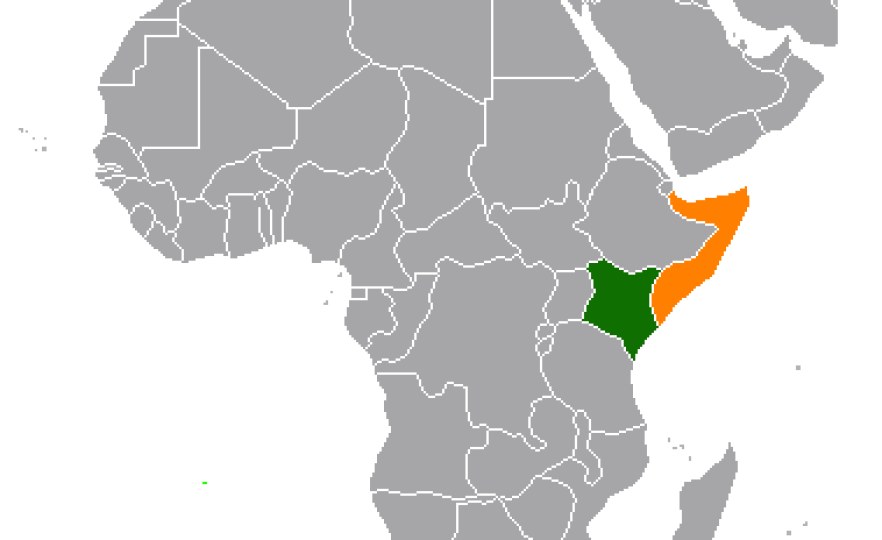Exploration Somalia has dragged Tanzania into its maritime dispute with Kenya at the International Court of Justice (ICJ) in The Hague, Netherlands.
The Horn of Africa country on Tuesday told the United Nations court that Kenya’s claim for the Indian Ocean territorial area came after Nairobi signed an agreement with Dar-es-Salaam in July 2009 that saw the latter acquire more maritime entitlements.
The court heard that the import of the agreements is that the boundary was delimited to the loss of Kenya as it adjusted the equidistant line of the coastal space projections and established a boundary of a parallel line of latitude.
Lawyers representing Somalia said the 2009 Kenya-Tanzania maritime boundary agreements were signed when Nairobi was fully aware that Somalia was claiming its space in the sea. The impact of the agreements is that they narrowed Kenya’s entitlements, the court heard.
“Kenya cut off itself with the agreements with Tanzania. It voluntarily lost its entitlements. It deliberately chose to surrender 25,000 square kilometres of its maritime space to Tanzania. Kenya has no right to make Somalia pay for what it did with Tanzania by adjusting boundaries,” said the lawyers.
During the second day of the hearings in the absence of Kenya, the court heard that Nairobi had argued that in the agreements it was protecting its interests and security.
The lawyers stated that it would be dangerous to draw boundaries between states based on which state is stronger, stressing that Somalia has a right to equitable boundary.
They added that even if it is assumed Kenya will suffer an injury if the disputed maritime area were declared Somali space, there was no evidence of prejudice, including economic, to Kenya.
“Although Somalia has no legal obligation, it will enter agreements with Kenya because of fishermen. But this does not change the boundary. None of the circumstances invoked by Kenya constitutes grounds to adjust the equidistant line,” said the Somali legal team during its 90-minute oral arguments.
The lawyers also told court that Kenya, in its arguments wanted the court to adopt the ‘parallel of latitude’ and ‘proportionality equitable principle’ in determining the dispute. However, the methodology is an unprecedented approach to delimitation and is not applicable in boundary matters. The lawyers said the methodology has never been applied by any tribunal and ICJ would be the first to do so.
“If it was a football match (Kenya) is starting with a final score, then penalty scores, to the start of the game, and concluding with the national anthem,” said the counsel.
The judges heard that Kenya had repeated the proportionality principle 16 times in its documents, though the argument is not supported by jurisprudence.
According to Somalia, Kenya’s claim to the disputed space is equal to revision of the coastal geography and Nairobi’s projection on the area cuts off Somalia.
The court further heard that Kenya had engaged in exploration of minerals in the area when the dispute had crystallised, a move that infringed on Somalia’s sovereign rights. Further, Kenya did not make any efforts not to jeopardise the dispute that was ongoing.
“It granted licences and authorised and allowed explorative activities,” said the counsel, adding that some moves created further animosity between the governments of Somalia and Kenya.
In its preliminary objection to the case that started in 2014, the court heard that Kenya acknowledged that the dispute existed from half a decade earlier.
While describing Somalia as vulnerable and one of the poorest countries in the world due to civil war, the lawyers urged the court to affirm the country’s rights to the matter and recognise violation of its rights by Kenya.
They also called on the court to order Kenya to stop violating Somalia’s sovereign rights.
“Somalia wants vindication of its rights. The resources are crucial to its development and the future of its people. Somalia came to the court for protection of its rights,” said the lawyers in conclusion of their presentations.
The court’s president said the ICJ had received a letter from Kenya and a response from Somalia. The letters are in regard to Kenya’s non-participation in the hearings.
The judge said the letter is under consideration and the court will communicate later. Kenya was scheduled to make its oral arguments on Thursday evening.








































admin in: How the Muslim Brotherhood betrayed Saudi Arabia?
Great article with insight ...
https://www.viagrapascherfr.com/achat-sildenafil-pfizer-tarif/ in: Cross-region cooperation between anti-terrorism agencies needed
Hello there, just became aware of your blog through Google, and found ...